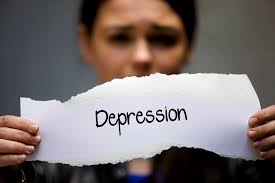Clinical Depression is a state of mind where the world around the patient operates rather negatively. It is not possible for people who are mentally healthy to understand how the sufferer experiences the world. So in most cases their condition is misunderstood by those around the person suffering, which aggravates the condition further.
The following article explores the idea whether a person who had been consecutively ill for 15 years and on medication can be cured fully without drugs and therapy.
The case study has drawn attention as one patient has had such an experience. Clinically it’s taken for a fact that patients with regular symptoms who are at the moderate stage can be cured but patients who reach the severe stages of depression may not be cured permanently.
Our case involves a person in her late 20’s who was into therapy once or twice a week and on drugs for 15 months. She was diagnosed as having conditions such as OCD (Obsessive Compulsive Disorder), paranoia, anxiety, eating disorders, insomnia, etc which qualified her for the research since she fitted the profile and her conditions were worsening when we came in contact.
There are four major theories covering the topic of Clinical Depression.
- Behaviorist Theory
- Humanist Theory
- Cognitive behavioral Theory
- Beck’s Theory
All four of the theories had something to do with the person’s environment and the impact they had on her – past, present and future. For starters, she wasn’t able to control her environment and instead it was controlling her. This situation included her finances, education, family, friends, and spouse. All of this led into a vicious circle which eventually led to mental illness and gradual decay of her health. She had shown suicidal symptoms and a history of a failed attempts as well.
In order to change the problems mentioned above, the patient took therapy and medication to calm her mental distress but just like every other medication, they had their drawbacks.
Finally, as a last resort she visited a retreat where all of her medications were taken away. She was detached from her contacts and her eating, sleeping, working and personal environment reversed to see what impact it has on her situation.
Surprisingly, the patient made remarkable recovery.
When younger, she was exposed to physical, mental and sexual abuse. Her family neglected her while she was growing up and she had to deal with her life’s problems on her own. That led her mental development to adopt to hostile environments but her mind didn’t operate well in normal, regular and similar situations.
According to Beck’s theory when your performance and contributions are underrated by your family or spouse then you may subconsciously seek approval elsewhere. When you are not provided with such approval from the outer world, you suffer from low self-esteem and hence zero self-worth, which at the end of the day causes depression. The person sees herself as a failure and thrive to do even more in order to achieve the desired approval that has not been provided. So her hostility towards normal life grows more and more. And thus, she was subjected to therapy.
Anti-depressants work up to a particular level but one cannot be fully cured since they have their own side effects. When the human body gets used to the medication, it thrives to receive the doses in a regular basis. Otherwise, it provides withdrawal symptoms that can lead to worse conditions. So usually it’s advised not to quit them immediately. If so the body may get into shocks which take their own toll.
After doing a full diagnosis over the patient’s family history, her own past and other necessary information, she had been sent to her retreat where the environment was conditioned as evaluated and recovery behavior pattern suggested. She was relaxed from her bindings, – education, finance and relationship and opened up to more comforting facts of life such as – arts, entertainments, public gatherings, discussions etc.
Her better sides had been highlighted, about which she had never been appraised, and in the process she was subjected to a semi-structured interview once a week for six months, where questions regarding her depression were asked and responses towards her conditions were recorded. In the beginning her responses were negative and she showed full symptoms of clinical depression. But gradually it started to change from the negative to the positive.
After six months she was on her way to recovery due to guiding her environment without the therapy or the medications, along with her own resolve coping skills.
So the answer to the question is that the person can be cured but the cost of treatment is also a factor to be taken into account.










